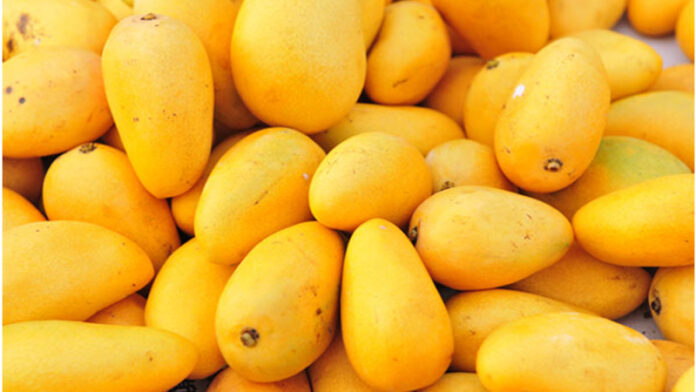ISLAMABAD: Pakistan’s mango exports are under renewed scrutiny amid allegations of non-compliance with international phytosanitary protocols, potentially jeopardising trade with key markets including Iran, the European Union, and Australia.
Multiple complaints submitted to the Prime Minister’s Office, the Ministry of National Food Security and Research, and the Ministry of Commerce allege that several Hot Water Treatment (HWT) plants are violating mandatory treatment standards. Inspectors from the Department of Plant Protection (DPP) have been accused of issuing phytosanitary certificates based on inaccurate or falsified records, allowing the export of untreated or improperly treated mango consignments.
“Around here, certificates are being distributed without any actual treatment. Truckers are loading mangoes directly from farms for shipment to Iran, claiming they already have the necessary paperwork,” said a mango exporter and owner of an HWT facility in Multan. He added that the enforcement of government-mandated treatment protocols had become ineffective, although both DPP and the Ministry reportedly acknowledge the seriousness of the issue.
In a formal complaint to the Prime Minister, Barrister Junaid Khan alleged that a group of HWT plant operators reportedly linked to a politically connected clearing agent at the Taftan–Mirjaveh border has been manipulating compliance systems. These facilities are said to lack adequate infrastructure, including non-food-grade equipment and poor water circulation, which compromises the pest elimination process critical for meeting export standards.
The complaint further alleges manipulation of treatment logs and manual tampering of compliance records to obtain phytosanitary clearance. These documents, sources claim, are then used to clear shipments at customs, with alleged facilitation by contacts within Iranian plant protection authorities.
Responsibility for monitoring phytosanitary compliance now lies with the National Agri Trade and Food Safety Authority (NA&FSA), which recently replaced the DPP in this role. NA&FSA regulations require HWT plants to undergo full-capacity audits, maintain real-time video surveillance during treatment, and ensure electronic documentation and traceability of consignments up to the Taftan border.
Despite these measures, insiders report that some HWT operators delayed mandatory audits for over 20 days at the beginning of the current export season. Using political connections, they allegedly influenced inspector appointments and obtained accreditation without completing the required demonstration audits.
Concerns have also been raised about attempts to influence staffing in NA&FSA’s central monitoring unit and limit regulatory oversight of certain exporters. This has led to fears of cartel-like behavior within the mango export sector.
According to Pakistan’s bilateral agreement with Iran, detection of fruit fly in any mango consignment can lead to a one-year suspension of the responsible HWT plant, which can only be reinstated after a successful re-audit. However, some exporters reportedly bypass the hot water treatment process, arguing it shortens shelf life and affects fruit quality.
Earlier this season, NA&FSA Director General Tahir Abbas—on deputation from the Customs Group—had announced that no shipment to Iran would be cleared without verified treatment. This policy initially led to a decline in export volumes. However, enforcement reportedly weakened after the first 20 days of the season due to political pressure. Some HWT plants were allegedly allowed to operate without meeting compliance standards, while others continued to face strict scrutiny raising concerns about unequal regulation within the sector.




